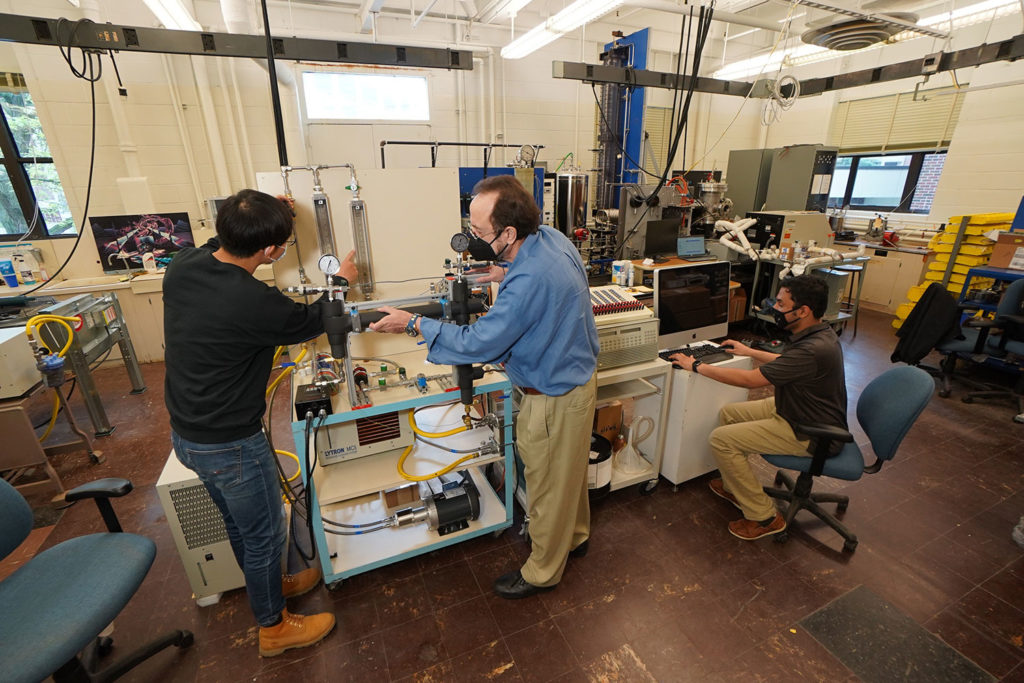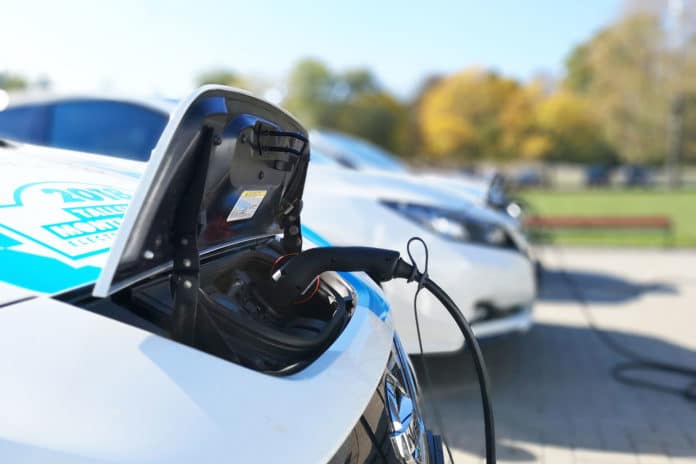Purdue University engineers have invented a new, patent-pending charging station cable that could combine with in-development vehicle charging technology, making it even easier for people to transition to electric vehicles with seamless recharging. The new charging cable would fully recharge certain EVs in under five minutes – about the same amount of time it takes to fill up a gas tank.
Currently, chargers are limited in how quickly they can charge an EV’s battery due to the danger of overheating. Purdue researchers are focusing on an alternative cooling method by designing a charging cable that can deliver a current 4.6 times that of the fastest available EV chargers on the market today by removing up to 24.22 kilowatts of heat.
The cable uses liquid as an active cooling agent, which can help extract more heat from the cable by changing the phase from liquid to vapor. A liquid-to-vapor cooling system can remove at least ten times more heat than pure liquid cooling by capturing heat in both liquid and vapor forms. These cooling benefits make it possible to use a smaller wire diameter inside the charging cable while dissipating a higher current.

In a laboratory demonstration, a prototype EV charging station cable with a liquid-to-vapor thermal management system accommodated a current of over 2,400 amperes – far beyond the 1,400-ampere minimum that would be needed to reduce charging times for large commercial EVs to five minutes. The most advanced chargers in the industry deliver only currents up to 520 amperes, and most chargers available to consumers support currents of less than 150 amperes.
“The industry doesn’t really need EVs to charge faster than five minutes, but we think we can increase the current even more by modifying both the state of the incoming liquid and the design of the cooling space around the conductor wires in the charging cable,” said Issam Mudawar, the leader of the research.
While the fast-charging cable won’t be on the market for some time as research continues, Mudawar has been developing ways to more efficiently cool electronics for the past 37 years by taking advantage of how liquid captures heat when boiled into a vapor.
Researchers intend to work with EV or charging cable manufacturers to test the prototype on EVs within the next two years. The testing will determine more details on charge speeds for specific models of EVs.
